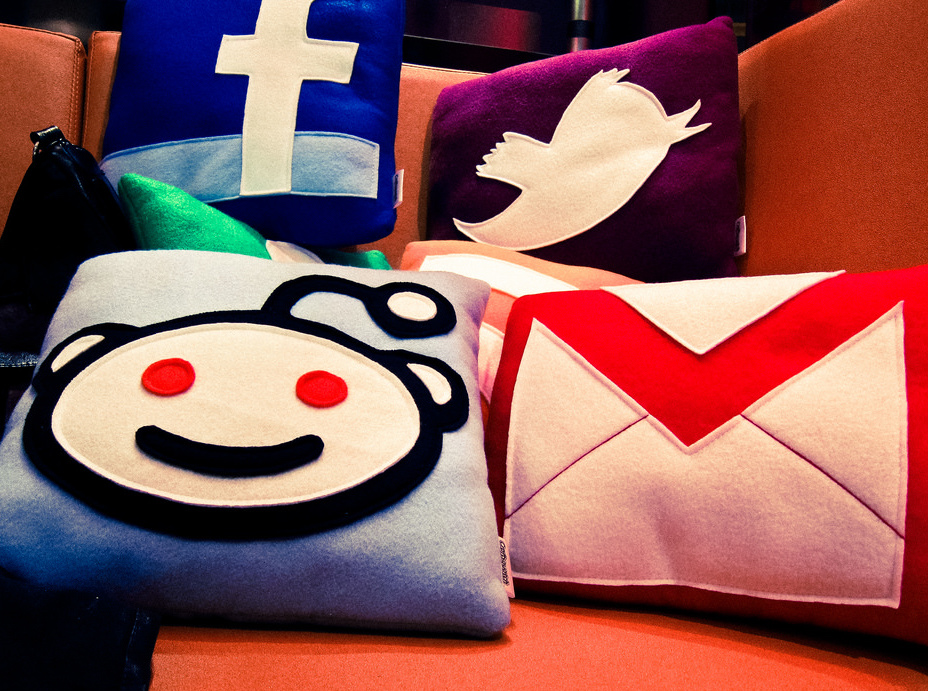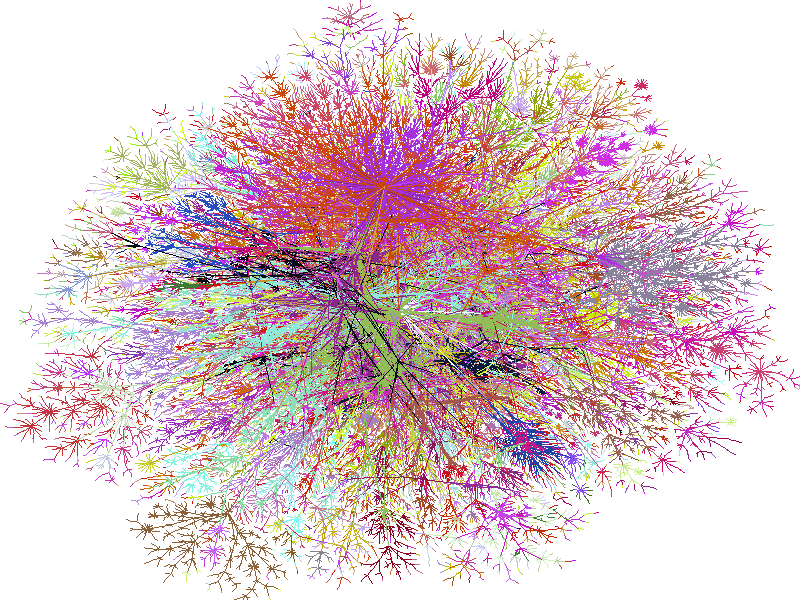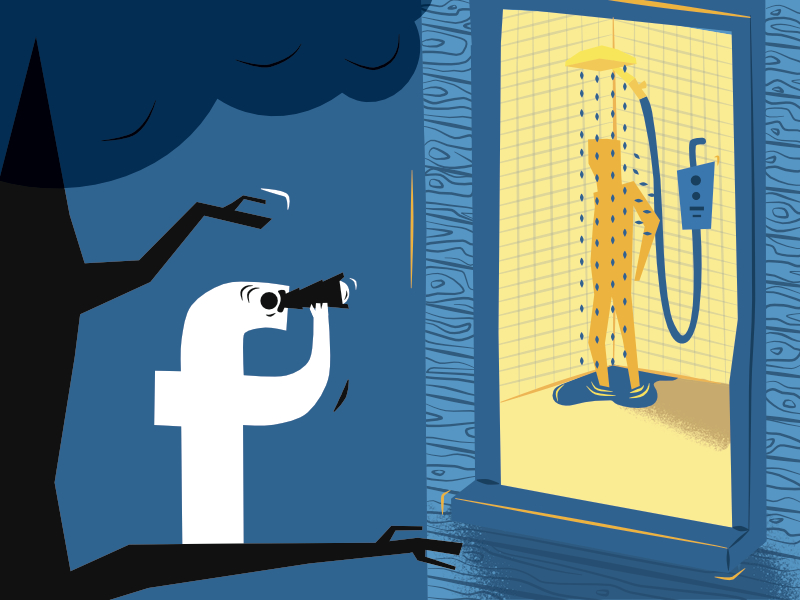“I guess the true problem here [is] the sharp contrast between platforms for people who make stuff and platforms for people who look at stuff. (Most of us are some blend of both, of course — all the more reason that the separation sucks.) Twitter is made for looking and sharing, so it’s used by everyone but sucks for creators; something like Flickr is made for making, so it has a lot of relevant tools but isn’t very heavily frequented. The result is that work gets clumsily cross-posted all over the place, and it’s left to individual creators to come up with their own ad-hoc rituals for disseminating new work.” — Eevee
Tag: social media
This website was archived on July 21, 2019. It is frozen in time on that date.
Sonya Mann's active website is Sonya, Supposedly.
Teens???

“Formulaic responses breed zero confusion. Instagram is not a place for tone or irony. […] Awkward is a ubiquitous teen word to denote socially unsanctioned behavior. It usually implies first- or secondhand embarrassment when you or a friend step outside the rules. […] Showing too much interest in anyone is mortifying. It lacks chill. […] When you have tools with which to stalk everyone all the time, the most seemingly aloof person wins. […] Teens aren’t money machines, oracles, or bellwethers of an uncertain future. They’re mercurial because they’re evolving, figuring things out for themselves.” — Mary HK Choi
Remote Mentorship
I read a lot. And I learn a lot from what I read. When I discover a writer I really like, whose work is particularly insightful, I glom onto them — I’ll tear through their whole archive, or if they’re particularly prolific, read all of their classics (defined as the pieces they themselves reference the most).
The internet’s casual and iterative blogging culture encourages this behavior in a way that the offline world doesn’t. Sure, you can read every book an author has written. But what about doing that and following their life on a day-to-day-basis? Social media lets you get to know someone in real-time even when they have never registered that you exist.

The term I use for this process is “remote mentorship” — it’s similar to traditional mentorship, but without the constraints of time or place. The mentor doesn’t have to be interested in the mentee or pay any specific attention to them. There’s no need to meet for coffee or exchange letters. In fact, this is scalable mentorship: someone can post once and influence many, without having to dispense one-on-one advice to each enthusiast.
I maintain a public list of people who shaped my intellectual growth. Some of them have mentored me in the traditional sense, and some are friends, but the majority are busy professionals who have maybe acknowledged me once or twice on Twitter. It’s not the same as dedicated hands-on mentorship, but I get just as much out of reading Slate Star Codex as I have out of personal coaching relationships.
Remote mentorship is a combination of the intellectual hero-worship that’s been around forever (boosted by the printing press), and today’s burgeoning influencer economy. It’s like the nerdy version of lusting after Instagram stars.
I’ve been thinking about this for literally years, but I owe a hat-tip to Venkatesh Rao’s “Cambrian Explosion of Consensual Realities” for the immediate inspiration. Guess what Rao qualifies as 😉
Critiquing Twitter’s New Followers Notification
I’m joining the grand tradition of ragging on Twitter for its weird and bad design choices! Let’s zoom in on a particular feature that I dislike. Here’s a notification that Twitter presents to me every day, from which I derive zero delight:

It is good that Twitter collapses distinct follow events into one notification. Unfortunately, I still feel negative about the experience. Being followed on social media has the potential to generate joy — hooray, people are paying attention to me! — but the reality is closer to getting an unsolicited sales call.
What if Twitter defaulted to not notifying me of new followers? That would keep my focus on conversations — where my focus naturally wants to be anyway — instead of urging me to grind my user stats upward. There’s no reason why Twitter must deliver a notification when someone follows you. What if you had to manually look at your list of followers to check on this? People would still do it, of course, but it wouldn’t be a behavior encouraged by the platform’s design.

Getting rid of the “people followed you!” notification might also cut down on the amount of #marketing and bot accounts that insta-follow me based on keywords in my tweets. From their perspective, the utility of following me would be lessened because Twitter’s design wouldn’t assist them in shoving their messages in front of my eyeballs. On the other hand, the change might encourage those accounts to proactively tweet at me, which would be horrible. I think it’s at least worth A/B testing to see what the actual behavior is.
Of course, changing this notification feature would be treating the symptom rather than the sickness. Well… sometimes you gotta do that. Eliminating the problem altogether would involve fundamentally changing how Twitter works, which I don’t want. Public broadcast systems naturally attract spam, but you can mitigate the effect on genuine users.
Obscurity Is the Best Strategy for Privacy
I wrote the following post for my cyberpunk newsletter, Exolymph. I’m cross-posting it here because the topic is relevant to other subjects that I’ve discussed on this blog.

Keep Your Head Down
Reading about operational security has turned my mind toward privacy rights. Opsec tactics are concerned with shielding information from enemy access — mostly through rigorous, consistent caution. As the Animal Liberation Front put it in one of their direct action guides, “True security culture requires a clear head, a rational mind, and personal self-control.” The assumption made by savvy opsec practitioners is that all data will be compromised eventually. Therefore, they aim to minimize the inevitable consequences.
I used to disregard privacy. My attitude was a classic: “If you’re not doing anything wrong, then you have nothing to hide!” (a viewpoint refuted very well by Robin Doherty). The problem is that even people who are acting ethically can run afoul of the law or be persecuted by the authorities. Consider how the FBI treated civil rights activists in the 1960s. Current mass surveillance by the NSA and similar government bodies is equally worrisome, as is the treatment of whistleblowers like Chelsea Manning. I’m not naive enough to think that this behavior will stop. People do anything that they are physically or technically capable of doing in order to access power — especially state agents.

I’m still not convinced that privacy should be a guaranteed legal right, or if so, to what extent. The best way to restrict your own information is simply to be secretive — stay quiet and maintain the impression of insignificance. After all, the vast majority of day-to-day privacy compromises are self-inflicted, simply because most people don’t care. That’s how Facebook and other social networks manage to compile detailed dossiers on their users.
So, what’s the essential takeaway here? I’m not sure. It’s interesting to ponder the consequences of a post-privacy society, until you realize that we already live in one. The results are quite mundane. Feels normal, right?
Exolymph is a cyberpunk newsletter — go check it out.
Sign up for my newsletter to stay abreast of my new writing and projects.
I am a member of the Amazon Associates program. If you click on an Amazon link from this site and subsequently buy something, I may receive a small commission (at no cost to you).